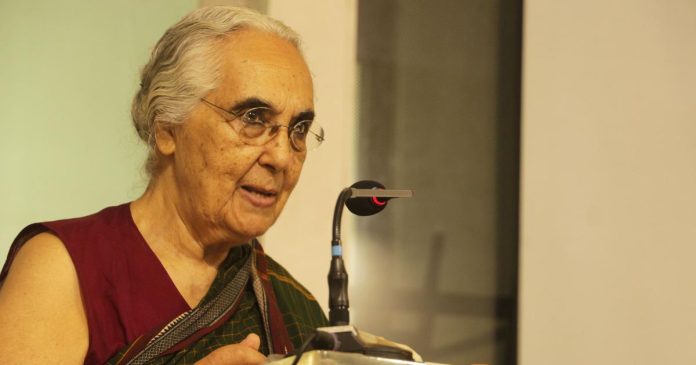New Delhi: Eminent historian Romila Thapar has raised strong concern over what she termed the “decimation” of Jawaharlal Nehru University (JNU) and other centers of social sciences in the last decade. Delivering the Kapila Vatsyayan Memorial Lecture at the India International Centre, the 93-year-old scholar warned against attempts to impose a “singular majoritarian narrative” that undermines India’s pluralistic traditions.
Thapar said academic standards at JNU had become “extremely problematic,” with the decline linked to the appointment of substandard faculty, political interference in curriculum design, and restrictions on freedom to research and teach. She also referred to the 2020 mob attack on the JNU campus and arrests of student leaders, pointing out that some remain imprisoned without trial for over six years.
She stressed that while authorities may silence speech, they cannot still thought. For education to have meaning, she argued, intellectual freedom must be preserved. Thapar also criticized current approaches to history teaching, saying that it was being manipulated for political ends under the guise of decolonization. According to her, this trend revives colonial constructs such as the Aryan race theory and the Two-Nation Theory, while dismissing earlier scholarship as “Marxist.”
She asked whether a diverse society like India could be reduced to a single uniform heritage, warning that singular majoritarianism is in direct conflict with democracy. Calling for reliable and accurate history, she urged investment in competent teachers who can encourage critical thinking. Thapar also expressed concern over the falling standards of basic education, which she said has left students less able to question and understand the society around them.




